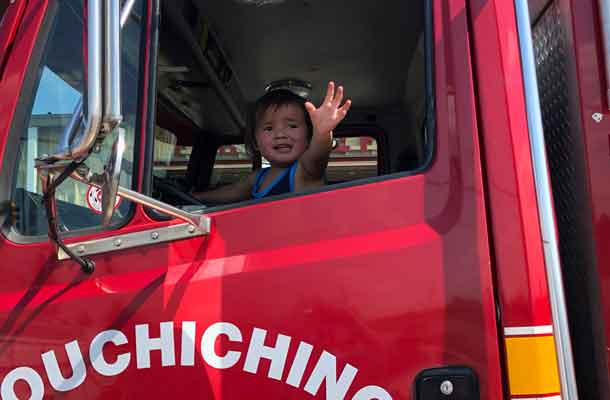Unceded Algonquin Territory, Ottawa, Ontario – Assembly of First Nations (AFN) National Chief, Cindy Woodhouse Nepinak, is marking Emergency Preparedness Week by calling for urgent enhanced capacity support for First Nations.
“First Nations are critical to the success of Canada’s emergency management system and must have access to equitable funding on par with similar-sized municipalities to ensure they can effectively respond to and coordinate during emergencies,” said National Chief Woodhouse Nepinak. “By building on the knowledge and skills that already exist in communities and upholding First Nations jurisdiction and control over emergency management, we can pave the way for a brighter and more prepared future.”
“It is essential that First Nations communities are equipped with necessary resources and support. This includes personnel, firefighting equipment, training and emergency management plans to mitigate risks and enhance community safety,” stated National Chief Woodhouse Nepinak.
Under the theme ‘Be Prepared. Know Your Risks,’ Emergency Preparedness Week is occurring at the same time as many First Nations are already facing this season’s natural hazards. Due to climate change, risks posed by emergencies, including natural hazards such as wildfires are becoming increasingly frequent, severe and inevitable. Just last year, 161 fires threatened the safety of First Nations, forcing evacuations in 90 Nations.
“Natural hazard seasons no longer come and go, and many of our Nations are still grappling with wildfires that never died out from last season. The longer that First Nations lack access to the equitable funding accessed by non-Indigenous communities, the longer our communities’ safety, security, and well-being are at stake. In addition to receiving equitable funding, First Nations must be able to lead decision-making to meet the unique needs of their communities. This requires a continued partnership with all levels of government. When First Nations are prepared, Canada is prepared,” concluded National Chief Woodhouse Nepinak.
The AFN encourages everyone to learn about the importance of emergency preparedness to protect their communities and families, including creating emergency kits, forming emergency plans and understanding local hazards. For more information, please visit: GetPrepared.ca.







